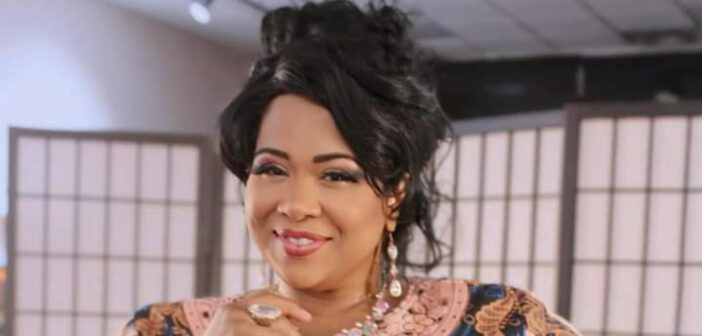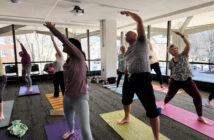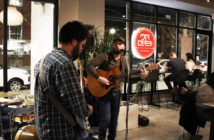Kari Holmes is a Bethlehem resident and founder of The Rising Sun Initiative, a nonprofit organization that aims to educate about and celebrate the stories of African Americans in the Lehigh Valley.
Imagine a mother, cradling her newborn child, still raw from the exhaustion of childbirth. She feels the weight of her child’s cries, feels the rising panic as something is not right. Her baby’s discomfort, which began as small whimpers, has escalated into a desperate, blood-curdling scream.
The mother rushes to the hospital, her every instinct screaming for help and trying to get someone to listen. Yet, when she speaks, the staff doesn’t seem to hear her.
They offer her only glances, avoid eye contact and move with a sense of indifference. Hours later, after repeated visits, she finally learns the truth — her child’s condition could have been treated earlier, but because of the hesitation and delay in response, it’s too late.
The pain of this loss is unimaginable — the agony of a mother who begged to be heard, only to have her cries ignored.
This isn’t just a story. It’s a reality far too many Black families face in healthcare settings every day. This mother’s pain is a reflection of a systemic issue so ingrained in our society that it’s often overlooked, normalized and brushed aside.
Forty percent of white medical students believe Black people feel less pain than white people. This statistic is shocking, but it reflects a deeply ingrained belief that continues to plague the medical field. How can a system that’s meant to heal perpetuate a lie about the humanity of the people it’s meant to serve?
Black children are 34% less likely to receive pain medication in emergency rooms compared to white children. This isn’t a difference of circumstance or biology. It’s a difference of how one’s life is valued. When did the pain of one child become worth more than the pain of another?
The consequences of this negligence are profound.
Black infants are twice as likely to die before their first birthday compared to their white peers. Black women are 41% more likely to die from breast cancer than white women due to delayed diagnoses and unequal care. AI-driven healthcare tools have been shown to prioritize white patients over Black patients for life-saving procedures, further perpetuating disparities.
These numbers are not just data points. They represent lives cut short, families torn apart and futures unfulfilled. These are not just medical failures; they’re moral and ethical failures — failures of a system that refuses to listen, refuses to act and refuses to care for those who need it most.
Doctors Kenneth and Mamie Clark understood the gravity of this problem decades ago. Their famous Doll Test, which studied how children reacted to dolls with different skin colors and their preference for white dolls, revealed how racism was embedded into the very minds of children, teaching them that Black was bad and white was good. Their research was instrumental in the landmark Brown v. Board of Education case that overturned segregation in schools, but its findings apply to every institution in our society, including healthcare.
Why do we continue to teach people to hate their own reflection? Why do we continue to perpetuate the lie that Black lives are less valuable?
The truth is, these disparities do not exist because of biology or income. They exist because of systemic neglect, medical bias and structural inequities that have been woven into the fabric of our society for centuries. These biases shape how we view each other, how we treat each other and, ultimately, how we value each other’s lives. This is not just an issue for doctors and scientists. This is a societal issue that impacts every single one of us, no matter our field, our background or our status.
So, I ask — how much longer can we allow this to continue? How much longer can we ignore the cries for help from our fellow human beings?
These are not just the cries of mothers in hospitals or children in emergency rooms. These are the cries of a community that has been systematically denied basic human dignity and care. What will we do to ensure these cries are no longer ignored?
It starts with each of us understanding the problem is not just out there, but in here, within the systems that shape our lives.
First, diversity training isn’t just a buzzword. It’s a critical step toward understanding the biases that influence our actions, whether we’re in a hospital room, a boardroom or a classroom.
Second, we need to educate ourselves about the history of these disparities and how they continue to impact the lives of communities of color, which is key to building empathy, breaking down walls and fostering change.
Third, listening to the voices of those who have been impacted by these inequities is the first step toward healing. This isn’t just about acknowledging pain. It’s about listening to the stories that have been silenced for far too long.
The Rising Sun Initiative is a step in this direction. Through our events — like Her Story: Let the Mother Speak — we provide a platform for African-American women to share their experiences, pain and triumphs.
The Her Story event on Saturday, May 17 at the Bethlehem Area Public Library will bring together distinguished women who were recently honored with Citations of Recognition by the Mayor of Bethlehem’s Director of the Office of Equity and Inclusion, Janine Santoro.
This will be an opportunity to listen, to learn and to understand the depth of what it means to live in a world where your life is treated as less valuable.
The question is no longer, “Why is this happening?” The question is now, “What are we going to do about it?”
This isn’t just a matter of numbers. It’s about real people, real families, real communities. It’s about the tears of mothers, the lost potential of children and the dreams that fade before they have a chance to grow. Behind every statistic is a mother holding her child, a family grappling with loss, a community enduring neglect.
When each of us chooses to see through the lens of empathy, to take on the responsibility of learning, changing and growing, we don’t just change our perspective — we can literally save a life.
In choosing to dismantle our biases, we not only change the statistics and how others are treated, but we also begin to heal ourselves from the false perspectives and narratives that have shaped generations. The healing we will bring to others is, in fact, the healing we offer ourselves.






Comment policy
Comments posted to The Brown and White website are reviewed by a moderator before being approved. Incendiary speech or harassing language, including comments targeted at individuals, may be deemed unacceptable and not published. Spam and other soliciting will also be declined.
The Brown and White also reserves the right to not publish entirely anonymous comments.